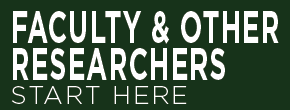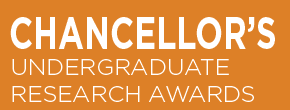Bernard Friedenson
Email Address: bernief@uic.eduCollege: Medicine Department: Biochemistry and Molecular Genetics
Title: Associate Professor
Phone: 847-827-1958
Webpage: https://www.linkedin.com/in/bernardfriedenson
Participating in the Chancellor’s Undergraduate Research Awards program: Yes
Research Interest:
Mutations in genes involved in defending the body against cancer viruses and other infections may play a larger role in breast cancer than previously thought. The genetic sequences of breast cancers from hundreds of different women finds mutations in genes involved in immunity in every one of them. The mutations were different in each of the breast cancers, but every cancer had mutations associated with some aspects of pathogen recognition and defense. Results are published in Functional & Integrative Genomics, in the Journal of Genomes and Exomes (available at http://www.la-press.com/many-breast-cancer-mutations-parallel-mutations-in-known-viral-cancers-article-a4437), and in proceedings from several national and international conferences. Videos describing the work have also been produced: How infections can cause breast cancer: Interpreting human breast cancer genomes https://www.youtube.com/watch?v=L1y_arTHw5Q Preventing hereditary cancers associated with BRCA1 or BRCA2 Gene Mutations http://www.youtube.com/watch?v=ht2zg3NbNNg or http://www.scivee.tv/node/39255 https://www.youtube.com/watch?v=rzssHG9hXVM The findings strongly indicate that gene mutations affecting the immune system play an important role in the development of breast cancer. Viruses such as Human papilloma virus, (HPV), or Epstein-Barr virus have been implicated as causes of breast cancer, and they are known to cause other cancers. But almost every human being is infected with one or more of these viruses and most people never develop symptoms, much less breast cancer. So viruses as causes of breast cancer are highly controversial. Different studies looking for viral causes of breast cancer have reached completely opposite conclusions. To help explain this controversy, gene mutations in breast cancer cells were identified in breast cancer cells that affect their ability to defend against cancer viruses. The mutations appeared serious enough to have made the breast cancer especially vulnerable. Some mutations were specific for products of viral infection such as the inability to recognize viral DNA or RNA as foreign. Cancer viruses that are normally harmless have become dangerous in breast cancer cells because a damaged or deregulated immune system can no longer control them. The mutations Friedenson identified were spread across many different genes and the sets of mutated genes differed in every breast cancer. But the patterns of mutations fit together neatly into the immune system and showed where it needed reinforcement. Results prove that breast cancer cells are highly susceptible to tumor virus infection if they have mutations that damage or deregulate their immune system. Certain highly specific antiviral defenses are just missing or disabled. There is large variation among sets of mutations in different breast cancers. Every breast cancer is different and these differences could easily be large enough to explain why trying to find a breast cancer virus has produced such conflicting results. Normal breast cells do not have the increased susceptibility to cancer viruses because the mutations were determined relative to normal human genome reference sequences. Autoimmunity, suggested by some as an alternate explanation, is not sufficient to cause cancer and does not explain increased cancer risks in immunosuppressed patients. Cancer risks can be reduced by anti-inflammatory drugs if inflammation occurs before there is immune system damage or deregulation. Inflammation by itself is not sufficient to cause cancer. Sequencing the genomes of individual breast cancers initially cost hundreds of millions of dollars. As methods improve, costs have been dropping so dramatically that it now costs about $1000-2000 to obtain raw sequence data from a human genome and this cost continues to fall. This information could help physicians prescribe more targeted and effective treatments. If we know which genes are damaged in a breast cancer patient’ s immune system, prevention or even therapy can be tailored by giving vaccines or perhaps antiviral drugs to reduce the chances of recurrence. Minimum time commitment in hours per week: 10 Qualifications of a Student:
Courses and interest in biochemistry, immunology, molecular genetics, molecular biology, microbiology, medicine, cancer and chemistry, >B average and advanced student at least a junior. Brief Summary of what is expected from the student:
Active interest in research project not involving formal lab work. Strong motivation and ability to work independently. Desire to help people.
NOTE: This researcher is currently not accepting applications for the Undergraduate Research Experience program.



